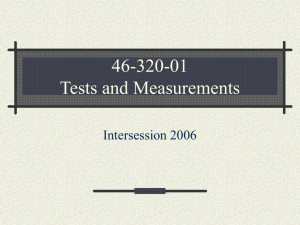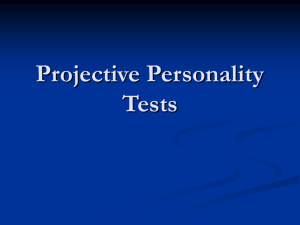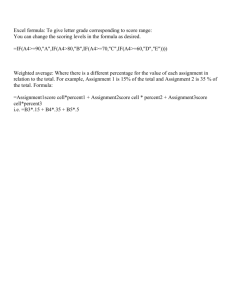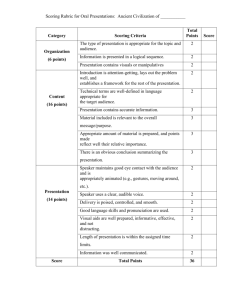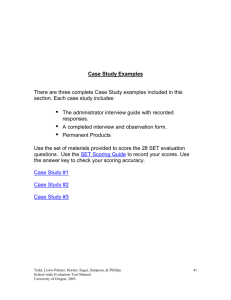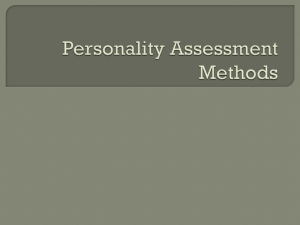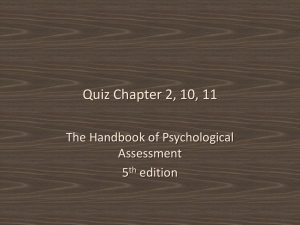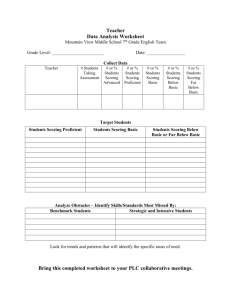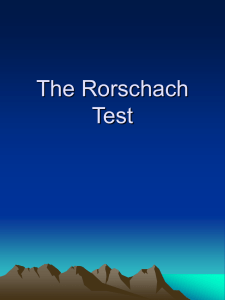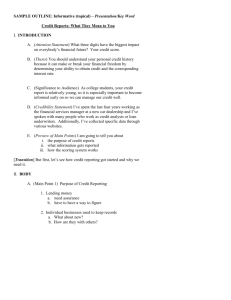Personality Assessment Methods: Objective & Projective Techniques
advertisement
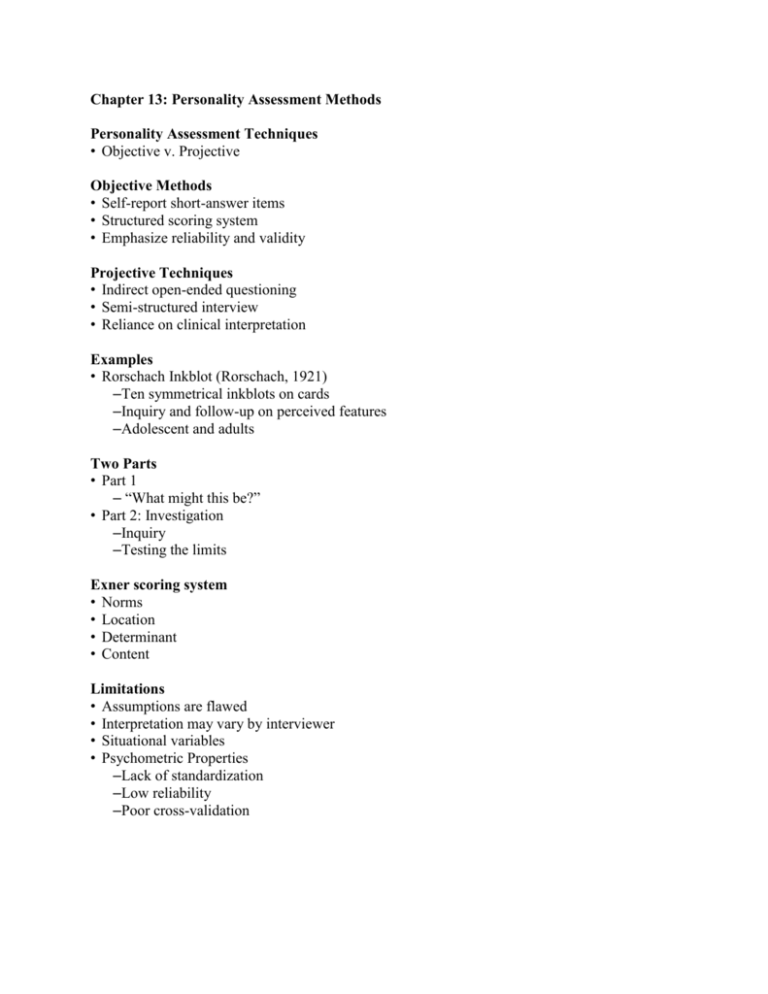
Chapter 13: Personality Assessment Methods Personality Assessment Techniques • Objective v. Projective Objective Methods • Self-report short-answer items • Structured scoring system • Emphasize reliability and validity Projective Techniques • Indirect open-ended questioning • Semi-structured interview • Reliance on clinical interpretation Examples • Rorschach Inkblot (Rorschach, 1921) –Ten symmetrical inkblots on cards –Inquiry and follow-up on perceived features –Adolescent and adults Two Parts • Part 1 – “What might this be?” • Part 2: Investigation –Inquiry –Testing the limits Exner scoring system • Norms • Location • Determinant • Content Limitations • Assumptions are flawed • Interpretation may vary by interviewer • Situational variables • Psychometric Properties –Lack of standardization –Low reliability –Poor cross-validation Examples • Roberts Apperception Test for Children (RATC) McArthur & Roberts, 1982) • Thematic Apperception Test (TAT) Morgan & Murray, 1935 –Tell a story - beginning, middle, and end • TAT • 31 Cards –1 is blank –Black and white Scoring System • Defense Mechanisms Manual DMM –Denial, Projection, Identification • Social Cognition and Object Relations –Complexity –Affect-Tone –Emotional Investment –Social Causality Scoring • Need • Press • Thema Word Associations • Free association –Test taker gives first word they think of in response to stimulus word –Interpretation is based on unusualness of association • Sentence Completion –Rotter Incomplete Sentences Blank –40 items –Scored in terms of attitudes and character • family, social, sexual • Examples • I enjoy __________________________. • What annoys me __________________. • I would be much happier if __________. • Going to school ___________________. Behavioral Assessment Approaches • Behavioral Observation –3rd party or observed person • Types –Recordings or rating scales • Self-monitoring –Analogue studies • similar variables or situations –Situational performance measures • Role Playing • Psychophysiological methods –Biofeedback –Polygraph –Plethysmograph • Unobtrusive measures –Physical trace Behavioral Assessment Issues • Reliability • Contrast Effects • Composite Judgment
